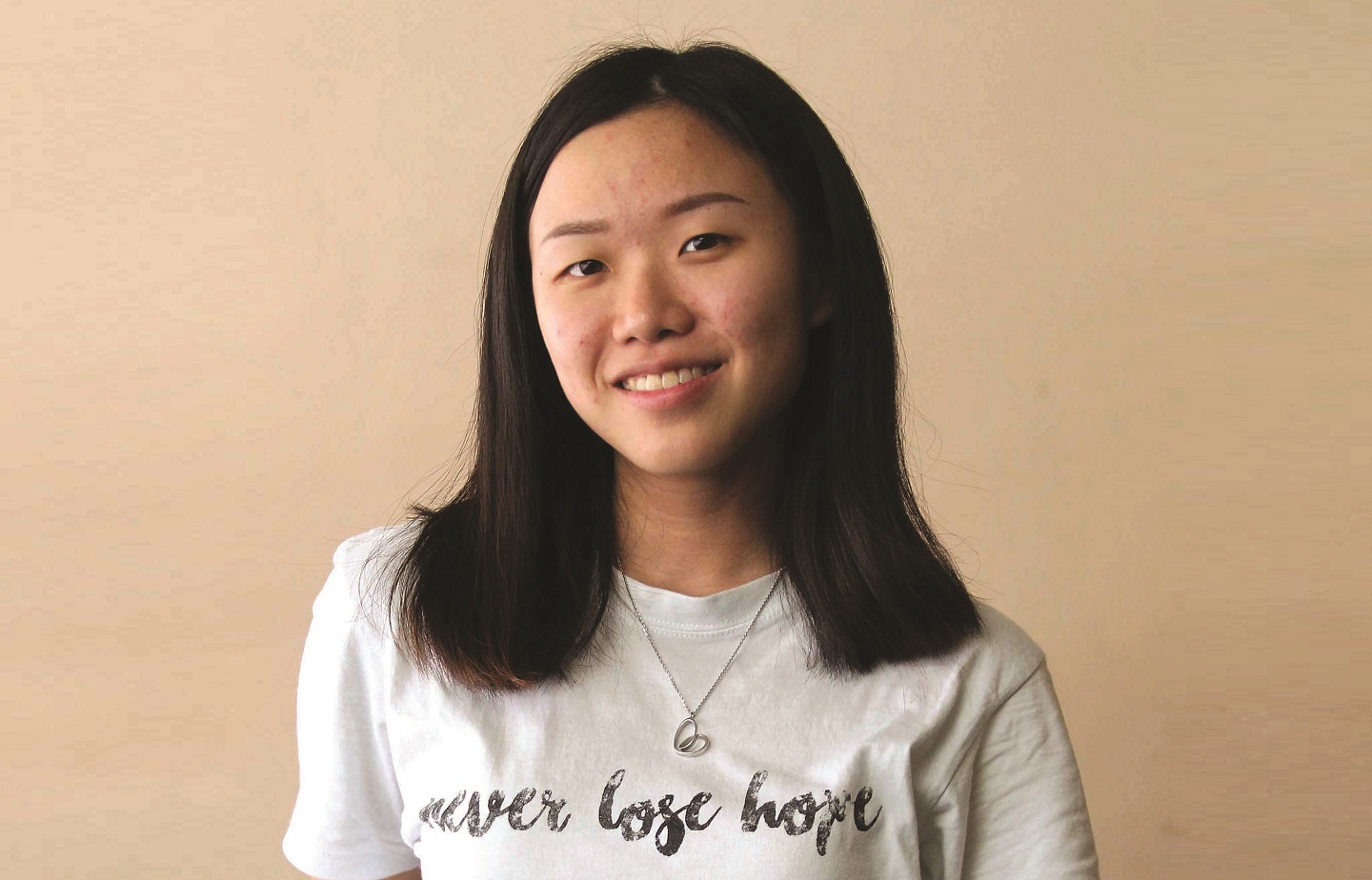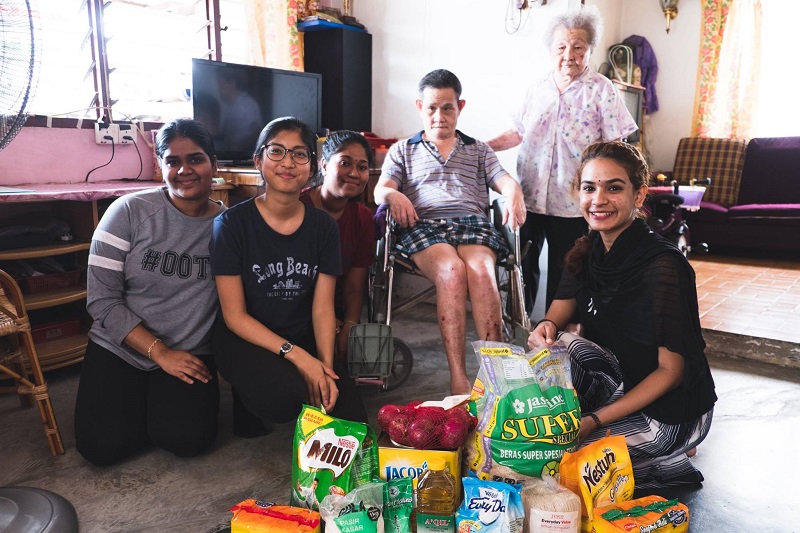
Co-founder of Roar of Hope, Enn Joe Ann. (Photo: Kenny Yap)
In a true display of student power, Roar of Hope was founded in December 2016 by four youngsters — Enn Joe Ann, Diong Jien Yuan, Alicia Tan Li Yi and Wee Ching Yee. The non-governmental organisation aspires to work towards banishing urban poverty and spreading awareness of the issue, with a food bank initiative as a most commendable stepping stone.
The idea of establishing the non-profit came about when its co-founders were volunteering with a different food bank programme, Food Bank Charity Osiris Kechara (organised by non-profit organisation Kechara Soup Kitchen). After getting to know the families personally and listening to their struggles, the friends wanted to continue assisting them even after the programme had ended.
Driven by the plight of the urban poor, they set up a food bank of their own, delivering monthly groceries to families in need in Sentul, Ampang and Jalan Ipoh, in Kuala Lumpur, based on the database of the previous food bank programme. “One of the ways to reduce the burden of families we work with is to put food on their table,” says Enn. The food items may vary based on unique requirements such as a baby in the family or health requirement such as diabetes. “The standard items [however] are oil, oats, biscuits, rice, sugar, salt and noodles,” she explains, adding that the cost ranges from RM100 to RM150 per family.
Enn tells us that they mainly provide dry food items as these last longer, and vegetables every now and then. This food bank support, however, is not intended to be the sole source of nutrition for the month and is meant to assist the families in making ends meet. In fact, the food supplies help them build a relationship of trust with the families, allowing them to look into various other focus areas such as assistance in finding work for the adults, education for the children, and health-related assistance for the ill and handicapped. “When we talk about poverty, it is not just about providing food subsistence or addressing hunger. Other elements such as education and quality of life are also taken into consideration,” says Enn.
Roar of Hope is currently managed by Enn and Diong, supported by volunteers as well as family and friends who believe in their cause. “We initially thought of getting funding from corporations but it takes time for us to prove ourselves to them as we are so new to this,” Enn says in explaining the challenges faced by the young organisation. Sometimes, operations are funded out-of-pocket and other times, by the generosity of donors.

“We have struggled a lot with funding,” she says, but this has not dampened her spirits. “We also sell merchandise in the form of T-shirts to raise funds but we realise it is not sufficient for our operations. Funding is very important for our organisation and once we have more stable funding, we will be able to grow our food bank to benefit more families,” says Enn, an actuarial science student who juggles her time between studies and running the organisation.
Although she refers to the decision to officially register the organisation in January last year as a “let’s just do it” moment for the team, make no mistake — Roar of Hope is a long-term initiative with a well-thought-through plan. Their work revolves around four of the 17 components of the United Nations’ Sustainable Development Goals. This includes eradicating poverty and hunger as well as ensuring quality education and decent work for all.
Roar of Hope also participates in The Good Tavern, a marketplace for social enterprises run by students of Sunway University, which has helped to alleviate their funding problems. Moving forward, and inspired by The Good Tavern model, Roar of Hope aims to focus on sustainable solutions for the families it serves. “Some of the families are headed by single mothers with no fixed income or jobs but they do have skills — they can cook, sew or make handicraft. We would like to initiate a programme — hopefully by the end of this year — to assist them in earning a living by providing job opportunities.” The plan is for the non-profit to assist with packaging and marketing of the handmade products.
Besides employment, other issues faced by the urban poor are exposure to gangsterism — particularly for children in high crime rate areas — domestic abuse, illness and the plight of single mothers. Enn is especially moved by the predicament faced by old, ailing parents caring for disabled or sick adult children. She is clearly distraught over what a 90-something-year-old food bank recipient said to her. “When we last visited, she told us that she hopes her son passes before her.”
At the same time, she is happy to see improvement in some families. Ideally, Roar of Hope envisions that the families will be independent of third-party support over a preset duration (determined on a case-to-case basis), which could be between 12 and 24 months.
Having seen positive changes in the families under their care, she is determined to continue Roar of Hope’s initiatives despite the financial and manpower challenges. To Enn, her motivations are clear. “I’ve heard their stories and learnt their struggles and I hope I can make a difference … If no one wants to do so and everyone is so busy with their own lives, how are things going to change?”
This article first appeared on Apr 30, 2018 in The Edge Malaysia.


